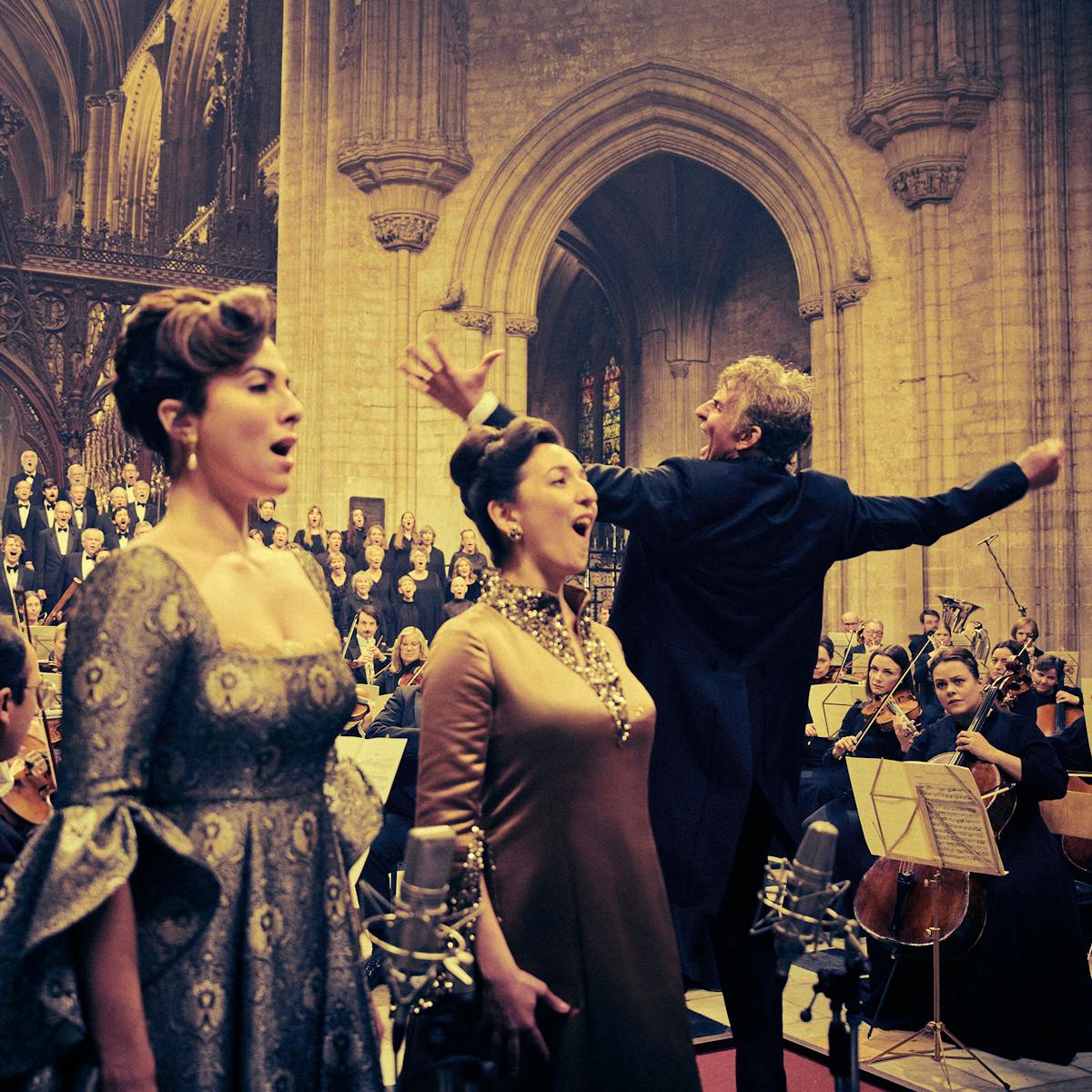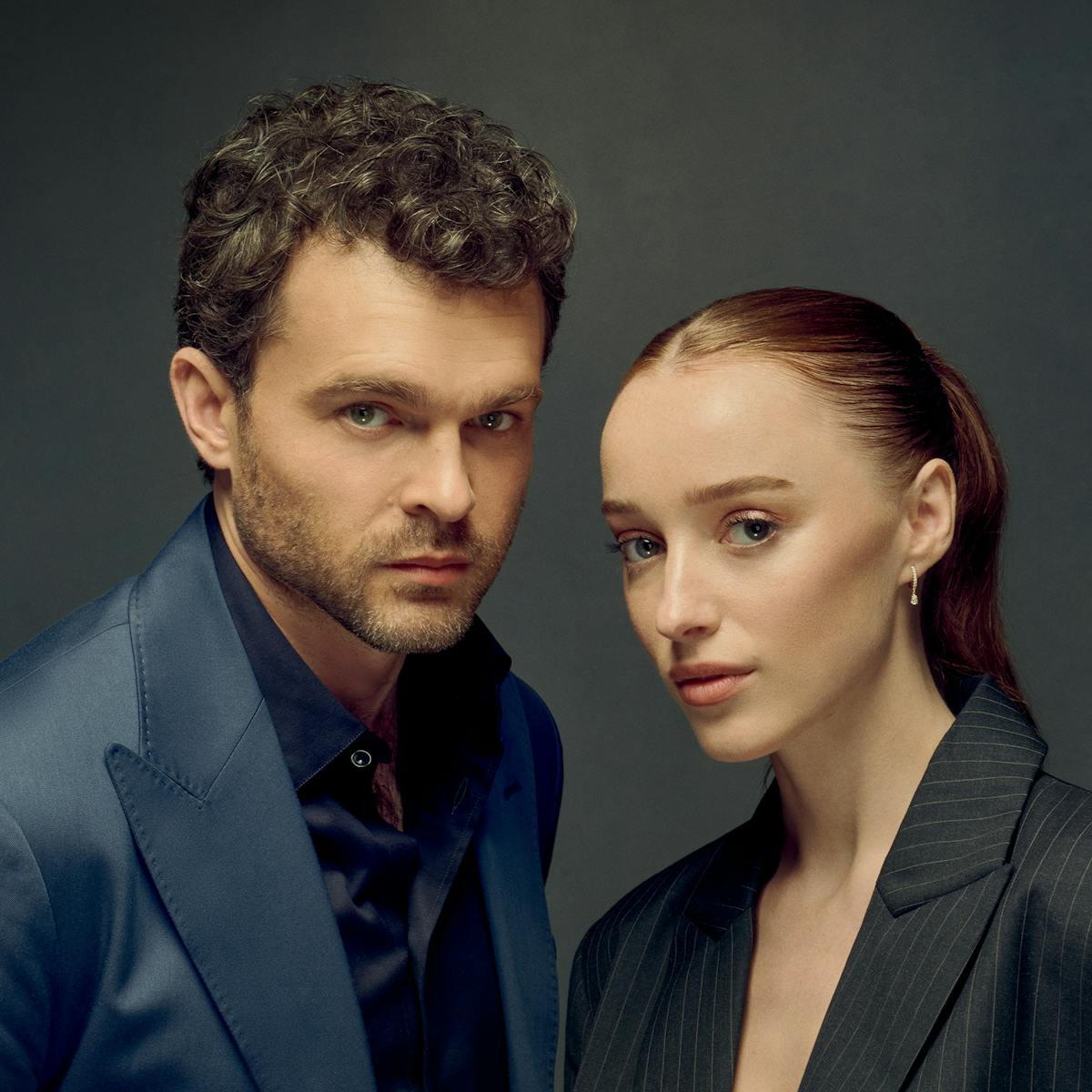Targeting gender, power, and capitalism, writer-director Chloe Domont is precise in her feature debut, Fair Play. Backdropped by the cutthroat world of finance, two young analysts, Emily (Phoebe Dynevor) and Luke (Alden Ehrenreich), are in a serious romantic relationship that defies company policy. When Emily’s star rises at work, Luke’s ego deflates, and the lovers are pitted against one another in a battle of wills.
Domont is here to ask big questions that scare us: What are the sources of our gender conflict, and how do we face them down together? “I want to entertain with substance and meaning, explore provocative shades of gray, take audiences on a ride, keep them on the edge, shock them, mortify them, move them,” says the first-time filmmaker. “Because if we’re not stirring the pot, what are we doing?”
An edited version of the conversation follows.

Chloe Domont on set
Photograph by Slobodan Pikula.
Queue: What was the genesis for Fair Play?
Chloe Domont: I started writing Fair Play as a reckoning of sorts. I was in a relationship with someone who was threatened by my ambition, and the only way I could cope was to make myself small. I spent the next several years repeating the same cycle with different partners. I started writing this film to say that these dynamics should no longer be normalized, but I also wanted to say what had been unspeakable to me for so long.
How did you approach writing the finance world?
CD: I landed on finance because I thought the high-stakes nature was ripe for drama. I could emotionally relate to the highs and lows of that kind of work environment. I knew some people in that world, and I studied with them like I would for an exam, and then I wrote the finance dialogue. It was like learning a new language.
Tell us about your visual approach to the film.
CD: [Andrey Zvyagintsev’s] Loveless was a big reference, a lot of [David] Fincher films, [Michael] Haneke, Ruben Östlund, Yorgos Lanthimos. It was all about creating this skin-crawling tension. The slow, tense push-ins and lingering shots around the characters are reflections of the impending doom that they refuse to accept.
I want to entertain with substance and meaning, explore provocative shades of gray, take audiences on a ride, keep them on the edge, shock them, mortify them, move them.”
Chloe Domont
What was it like to work with Phoebe and Alden?
CD: Building their chemistry was effortless. We shot the shower scene pretty early on, and it was just magic. Alden and Phoebe started slow dancing, and the way that he looked at her and she looked at him, I knew I had a movie at that point.
Their apartment reveals so much about them — can you talk about working with your production designer to create that environment?
CD: I wanted to create this long hallway that feels like the world is closing in on them. We built all these sets on stage, so what we actually did was we started to bring the walls in very, very slowly. It’s not something that the viewer will ever notice, but you just feel it.
Walk us through the film’s final bloody scene.
CD: There is ugliness on both sides throughout the film, but to me, when Luke uses physical force to reclaim that power, there’s a clear line in the sand that’s crossed, and then it’s on Emily to hold him accountable. The ending is where genre and story come together in one final punch. The whole film is teeing up this thriller undertone, and I believe that no matter how much you twist and manipulate genre, you still have to pay it off in the end. With every thriller, there will be blood.






